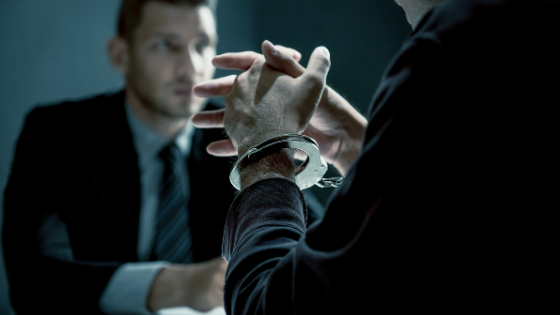Safety is a basic human need. We take safety measures with our children daily by ensuring they buckle their seatbelts, wear helmets and pads, learn to swim, and understand safe internet usage. These precautions seem like second nature when our children are with us. But what about when the safety measures are out of our hands? What is being done to ease our worries and keep our children safe when we send our children to school?
Safety and the Learning Environment
School security is a constantly evolving discipline that changes as needs change. Front office workers, teachers, and administrators stay busy all day with the hustle and bustle of students arriving at school, being dismissed, and being responsible for screening visitors throughout the day. Security has become a top priority for school districts year-round, with the primary goal of keeping students and staff safe.
But there’s another critical reason security has become increasingly important in schools. With the rise in school incidents nationwide and the subsequent drills to prepare students in the event of an emergency, students have become more aware of the risks inherent in being in school each day. Students who are overly concerned for their safety may become anxious or distracted, which can impede learning. When properly cared for, students gain a sense of security and belonging and are open to learning, discovering, creating, and innovating. This supportive culture is conducive to learning and the type of culture we attempt to nurture by providing safe and secure schools.
Why Security Personnel are Needed in Schools
Security measures should be in place from the moment a visitor arrives on school grounds. There should be cameras in the parking lot, single entryways into the building, and access-controlled technology, all of which help control activities in and around the building. But more and more, school districts are calling on dedicated security personnel to be the proactive eyes and ears on the ground. While technology certainly plays an important role, dedicated security personnel can often prevent an incident from occurring in the first place or can help prevent a situation from escalating.
There are two main types of security personnel at schools: the school security officer (SSO) and the school resource officer (SRO). Both are responsible for ensuring the safety, security, and welfare of all students, faculty, staff, and visitors. The main difference between an SSO and SRO is that an SSO is a trained security officer not on active duty in a law enforcement agency. SSOs are employed by the local school board and are typically dedicated to a specific school. They can also collaborate with other SSOs and administration for group events away from their assigned school. They may be full-time or part-time employees. Their role is to maintain order and discipline, prevent crime, investigate violations of school board policy, and detain students suspected of violating the law or school board policies on school property or at school-sponsored events. Even though an SSO is not a certified law enforcement officer, state-specific certification requirements and yearly training, known as in-service training, must be completed to continue in their profession. Anyone can become an SSO by completing the training certification - a law enforcement background is not required.
Larger schools, or schools in higher risk areas, may employ a School Resource Officer. An SRO is a certified law enforcement officer on active duty with a local police department or other law enforcement agency. This officer is assigned to a specific school for the entirety of the school day. An SRO will arrive before the students’ arrival and will be on duty until after dismissal. In some jurisdictions, an SRO may be assigned to multiple schools and will divide their time at each school according to the schools’ needs.
Even if a school employs an SRO for specific duties, an SSO can still be an invaluable addition to the school’s safety team. While the SRO may focus on traffic control, visible threats, and coordinating with the local law enforcement agency, an SSO can focus on maintaining order within the school and building relationships with students. The SRO and SSO can work together to prevent or mitigate school violence while working in conjunction with other members of law enforcement as needed. An SSO can also provide valuable insight to the administration or law enforcement as a liaison for students who may feel uncomfortable expressing concern to a principal or police officer.
Other Roles of School Security Officers
Whether a school has both an SRO and SSO or an SSO only, here are some of the roles the SSO can play to help keep students, staff, and visitors safe and to foster a healthy learning environment throughout the day.
-
Handling agitated individuals in the school - School employees handle many situations throughout the day, including interactions with the parents/guardians of students. While the majority are pleasant and routine, some situations become confrontational. Training on responding during hostile conditions is not typical for front office workers or teachers and could be unsettling for anyone unfamiliar or inexperienced. An SSO with training in communication tactics would be able to assist and de-escalate any level of hostility that may arise.
-
Dealing with weapons on school property - No force fields around schools will keep a weapon from coming inside. Whether intentional or accidental, a school – even an elementary school – is not immune from dangerous objects making their way in. An SSO equipped with a radio could immediately call for assistance if an incident called for reinforcement.
-
Building trust - School Security Officers provide an additional resource to students as a protector and mentor. This is important even at the elementary school level, as students who engage with an SSO at a young age will likely learn to trust them when a need arises. While an elementary-aged student could go multiple years without needing the assistance of an SSO, it is essential as they grow to understand that the SSO is someone they can confide in when they or someone they know needs help. And for middle and high school students, a trusted SSO may be called on when there is an incident of harassment, bullying, drug use, or other types of danger.
Making School Security Officers Part of the Team
Mike Jones, President of Major Security Consulting and Design, has stated the following about school security:
I believe that the safest place in the community should be our schools. Children between the ages of 5 and 18 spend a significant portion of their lives in the school environment. They are shaped in many ways by their experiences – good and bad – inside the schoolhouse, on the bus while participating in clubs, and on the athletic field. The responsibility placed on the professionals who teach and care for our children is immense and impactful.
Providing security personnel allows these professionals to focus on the mission of education in a more relaxed and secure environment. It provides students with a sense of security and a healthier learning environment. And it assures parents that someone is at the school with the sole purpose of looking out for the safety and security of their children each day. I hope school districts will take whatever measures are needed to make SSOs an integral part of their school security team.



.png)

.jpg)
-1.jpg)
.jpg)
.jpg)
.jpg)
.jpg)


.jpg)
.jpg)
.jpg)
.jpg)
.jpg)
.jpg)

